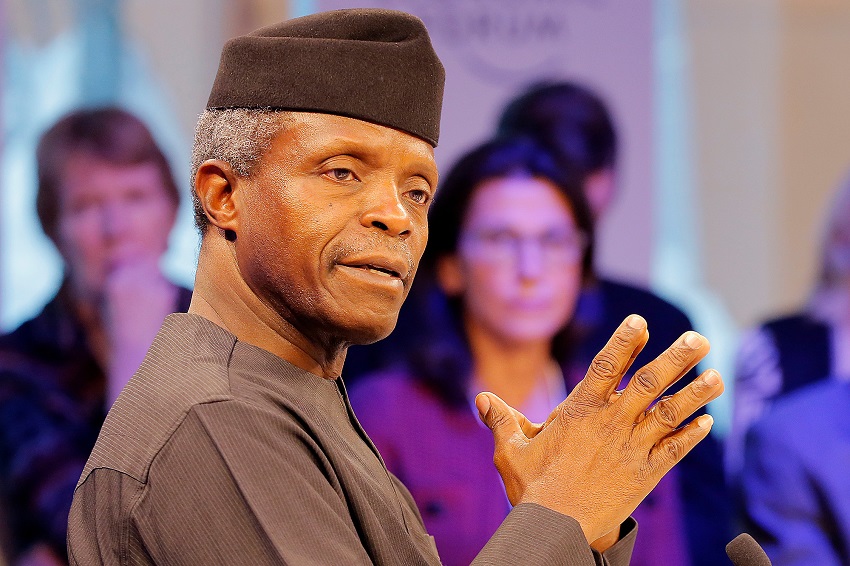Headline
Osinbajo calls for development of suitable curriculum to address post COVID-19 pandemic

Vice President Yemi Osinbajo has called for an urgent need to design and develop suitable curriculum assessments and monitoring systems that will focus on improving the quality of education during and Post-COVID-19 pandemic.
Osinbajo, who was represented by the Minister of State for Education, Mr Chukuemeka Nwajuiba made this known in Abuja on Tuesday at the 2020 Nigeria’s Annual Education Conference.
The conference, which is in collaboration with national and international partners has its theme: “Building an Effective, Resilient and Sustainable Education System for Nigeria’s during and Post-COVID-19 Pandemic: The Way Forward”.
The vice president said that the adaption of the curriculum was necessary to facilitate learning in hybrid schooling situations in view of the unexpected disruptions of education system by COVID-19 pandemic.
According to him, the possibilities of designing Science, Technology, Engineering and Mathematics curricula such that they can be taught virtually should be worked out by appropriate government offices and stakeholders.
“The theme of this conference is a true reflection of an unusual global challenge faced by education in recent days.
“The emergence of Coronavirus pandemic has no doubt adversely affected the education sector and the economy at national and global levels.
“Let me point out that to cushion the effects of the pandemic the world is embracing technological innovations. Virtual interactions has increasingly replaced face-to-face engagement and limit the total distruption to many sectors.
“UNESCO has recommended the use of distance learning programme, open educational applications and platforms by schools and teachers to reach learners remotely.
“There is an urgent need to design and develop suitable curriculum assessments and monitoring systems that focus on improving the quality of education through the alignment of the curriculum to existing and projected education needs,” he said.
Osinbajo further called for revising of the current assessment methods and reinforcing systems that support the effective monitoring of the education sector during and post-COVID-19 pandemic.
He, therefore, noted that an appropriate learning assessments methods as well as digital monitoring and evaluation programmes must be designed to drive the digital curriculum that would be developed.
The Minister of Education, Malam Adamu Adamu reiterated the commitment of the ministry for continued deployment of technologies and the internet in education to ensure that online education became integral component of school education.
Adamu, represented by Mr Sonny Echono, the Permanent Secretary in the ministry said that the disparities in access to distance learning across the country must be removed to enhance sustainable system of education.
“The closure of school due to COVID-19 made some teachers in the country to deliver online learning without proper training and support preparation.
“They had to digitise their course contents and/or develop their contents.
“This development calls for immediate response to ensure gaps does not occur again.
“Let me reiterate that it is important to develop the capacity of teachers in digital divide. The anticipated technology will strengthen the inclusive alternative education of marginalised and disadvantaged group accessing learning a new way.”
The minister also noted that ministry had improved education funding by constituting the Teachers Development Fund Account dedicated to take care of teachers need.
Similarly, the representative of UNESCO Regional Office Director, Mr Mamadou Lamina said that the organisation was committed to supporting the government of Nigeria in the area of education.
Lamina said there was need to adopt innovation as a new challenge in the education sector.
Mrs Elizabeth Wapmute, the Commissioner for Education, Plateau said that the e-Learning posed a challenge and many children in the rural communities were not reached during the COVID-19 pandemic.
She, therefore, called for speedy adoption of technologies and the internet in education such that it would reach every part of the country.




 Davido's Net Worth & Lifestyle
Davido's Net Worth & Lifestyle 
